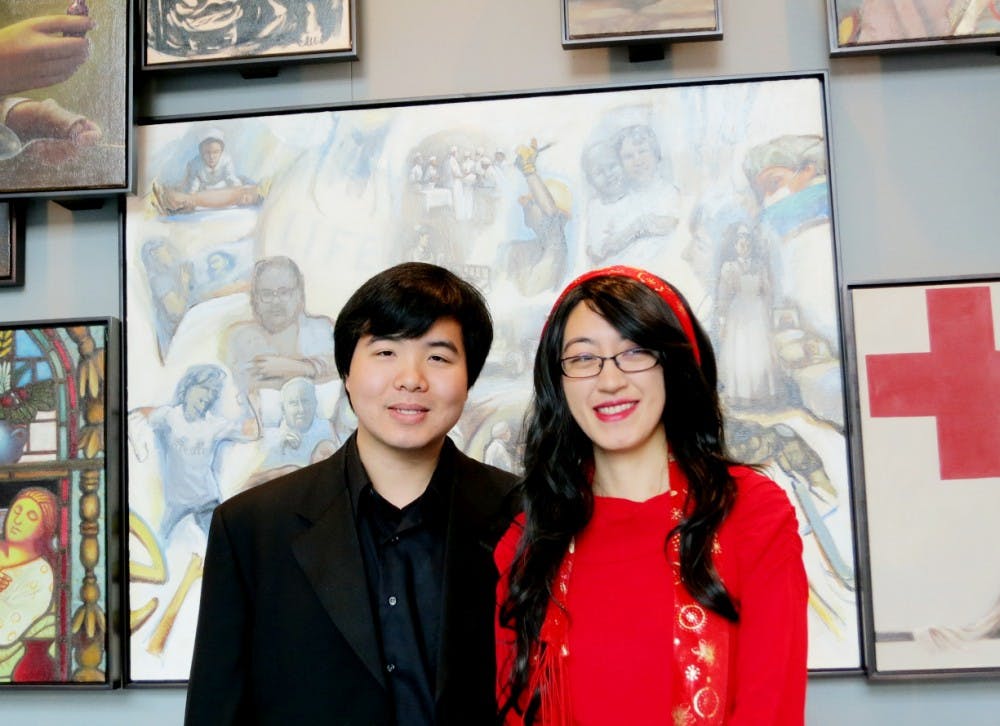Has finals season left you stressed out and depressed? A new Penn-developed app can help you take deep breaths
“AppHappy” is designed to target Asian international students, who are more likely to suffer from mental health problems than American students but are reluctant to seek help.
“They come to this country, and they get immersed into an entirely different culture, and their culture says ‘don’t talk about anything that has to do with not doing well, stress or mental health issues,’” Nancy Hanrahan, an associate nursing professor and the project’s faculty advisor, said. “There is a great reluctance to get the help they need.”
Matthew Lee and Linda Kang — who are part of the Hillman Scholars Program in Nursing Innovation, which is an integrated bachelor of science to doctorate program — dreamt up a game that could teach important stress relief strategies, which participants might get in a clinical setting. Playing a game does not hold the same stigma that is associated with traditional therapy. “We wanted to teach people how to manage stress and anxiety and other mental health issues in a fun kind of way,” Kang said.
Related: New program addresses adult care for autism
The exercises are encapsulated into role-playing games to allow for players to advance their characters while practicing important stress relief skills.
For example, players can practice deep breathing as a form of stress relief through the app. Lee said that when characters in the game need to see “beneath illusions or what is hidden,” they have to breathe deeply to help achieve clarity. Both player and avatar are taught the proper rhythm and manner of breathing for relaxation. The player has to use this skill frequently in order to advance in the game.
“We have to make the app accessible to people and package interventions in a way that they’re effective, but they’re also appealing,” Lee said.
Related: For Nursing students, an alternative to OCR
Right now, the app is in prototype mode, which includes a mock up of the login screen, avatar selection screen and a few mock exercises. Beginning in the spring, Kang and Lee will conduct focus groups to see what people think of the app so far. “We want this to be a very user-centered, user-focused game so that it will actually work and people will actually want to use it,” Kang said.
Once developed, the hope is that the app will be used on many different campuses, and the team is currently working with Peking University to see if it has value in China as well.
According to Hanrahan, this project is part of a new wave of technology aimed at changing negative attitudes and behavior.
Related: Penn stays silent over Peking University prof departure
“There is a lot of potential for using the gaming methods to either engage people to change behaviors into a more healthy lifestyle or to treat particular symptoms that people might have,” Hanrahan said.



